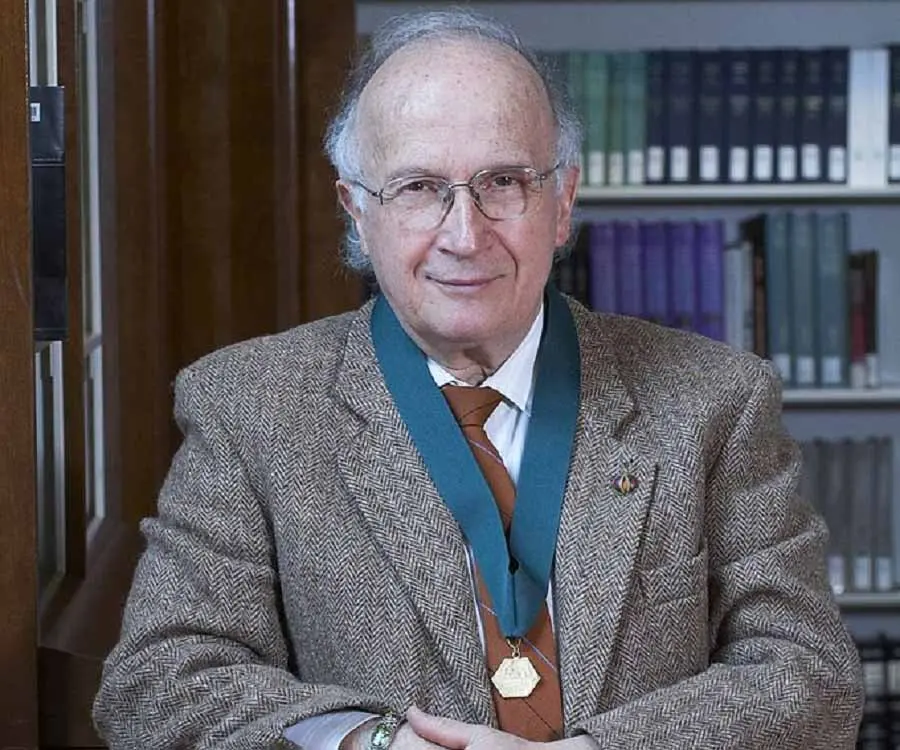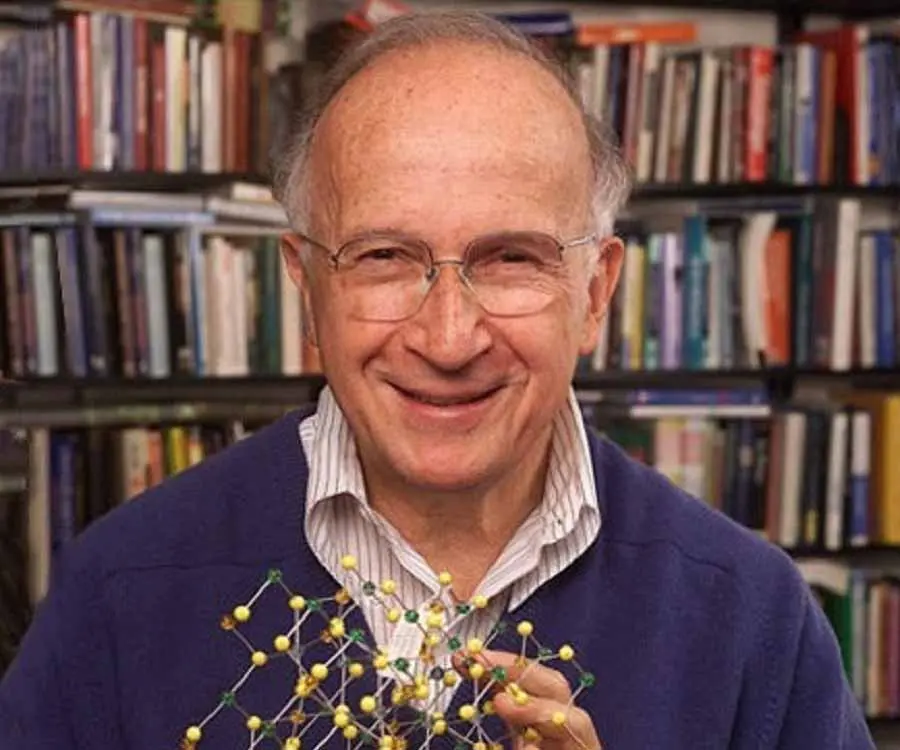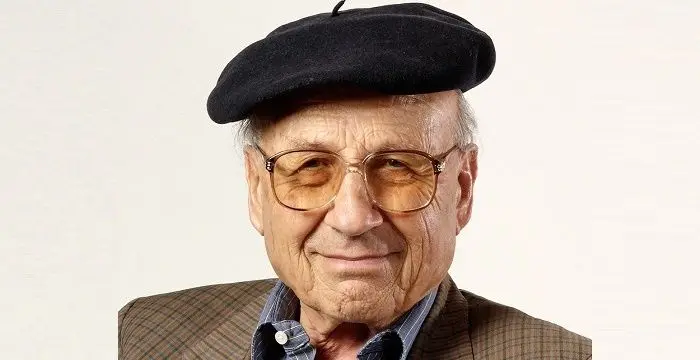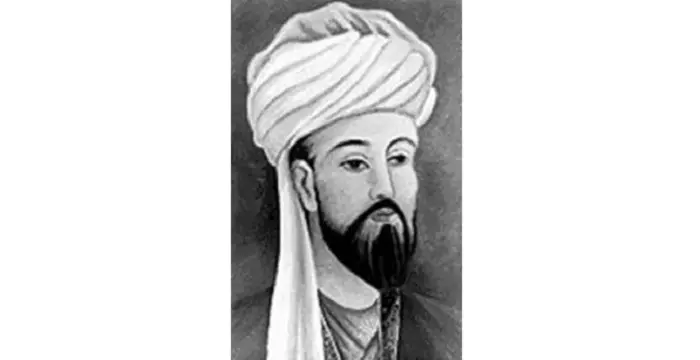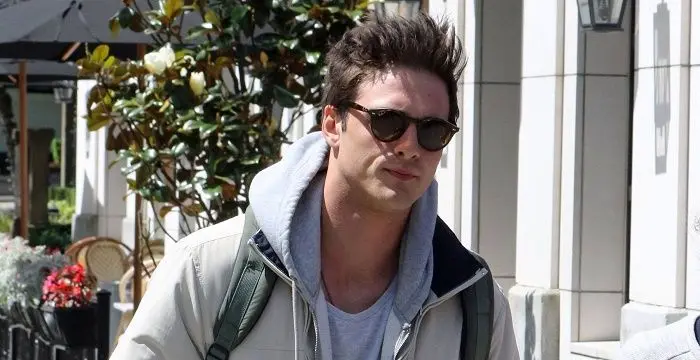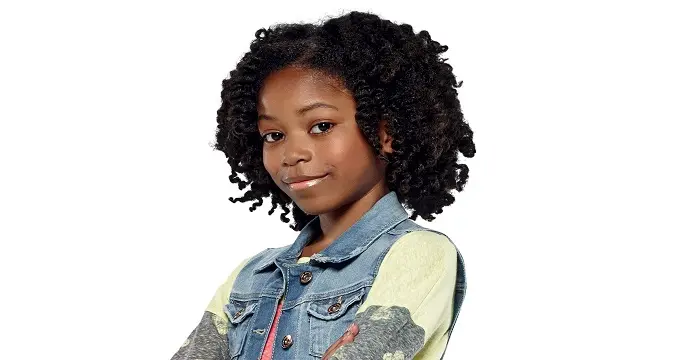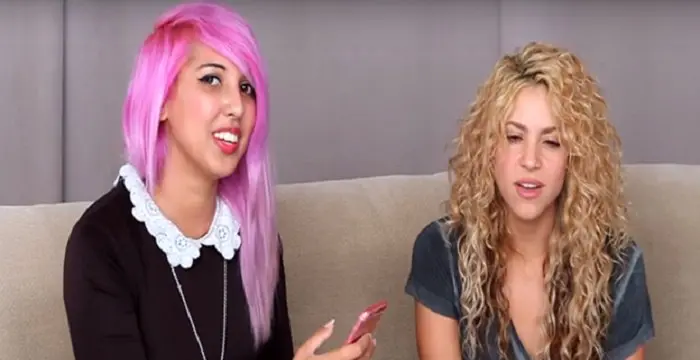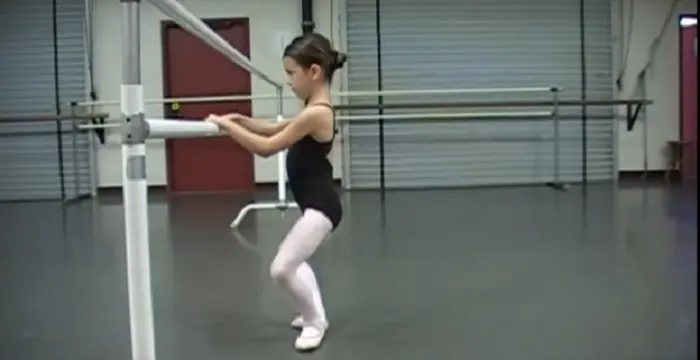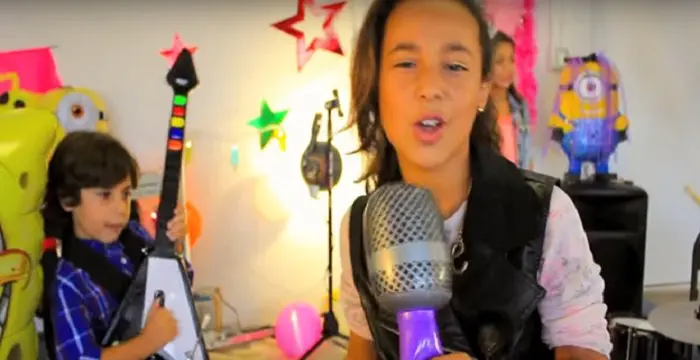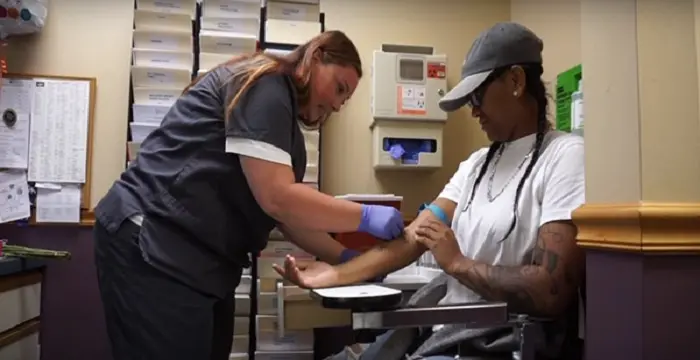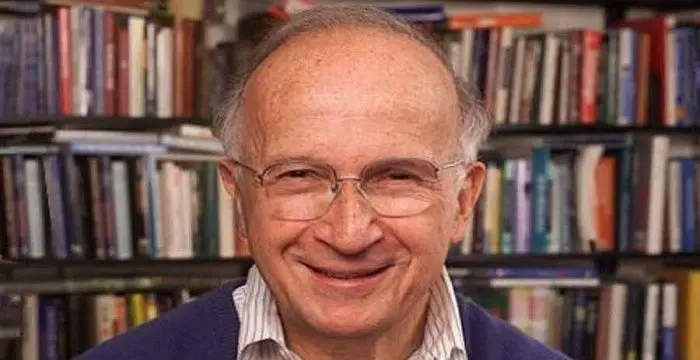
Roald Hoffmann - Theoretical Chemist, Facts and Childhood
Roald Hoffmann's Personal Details
Roald Hoffmann is an American theoretical chemist who was the joint recipient of the 1981 Nobel Prize in Chemistry
| Information | Detail |
|---|---|
| Birthday | July 18, 1937 |
| Nationality | American |
| Famous | Scientists, Chemists, Theoretical Chemist |
| Spouses | Eva Börjesson |
| Known as | Roald Safran |
| Childrens | Hillel Jan and Ingrid Helena |
| Birth Place | Złoczów, Poland (now Ukraine) |
| Gender | Male |
| Father | Hillel Safran (Father), Paul Hoffmann |
| Mother | Clara |
| Sun Sign | Cancer |
| Born in | Złoczów, Poland (now Ukraine) |
| Famous as | Theoretical Chemist |
Roald Hoffmann's photo
Who is Roald Hoffmann?
Roald Hoffmann is an American theoretical chemist who was the joint recipient of the 1981 Nobel Prize in Chemistry for his theory concerning the course of chemical reactions. He studied the mechanism involved in chemical reactions utilizing quantum mechanisms. Hoffmann was born in Poland and had to experience traumatic experiences at a labour camp as a child during the World War II. However, he along with his mother escaped and subsequently moved to the United States of America after the World War II. He earned good grades and scholarships in school that allowed him to pursue higher education in reputed institutions like the Columbia University and Harvard University. He graduated with a post graduate degree in Physics and PhD in Chemical Physics. His work with Robert B. Woodward at Harvard University led to the development of set of statements now called the Woodward-Hoffmann rules in organic chemistry. Since 1965 he is associated with the Cornell University, currently serving as the Frank H. T. Rhodes Professor of Humane Letters Emeritus. He is also an accomplished playwright and poet whose works have been published in multiple languages. His works have earned him numerous awards including the National Medal of Science and honorary degrees from over 30 universities around the world.
// Famous Chemists
Henry Cavendish
Henry Cavendish was a theoretical chemist and physicist, renowned for discovery of hydrogen and calculation of the mass of earth. To know more about his childhood, profile, timeline and career read on
Walter Kohn
Nobel Laureate Walter Kohn was an Austrian-born American theoretical chemist and physicist. Check out this biography to know about his childhood, life, achievements, works & timeline.
Jabir Ibn Hayyan
Jabir Ibn Hayyan was a medieval era polymath. Check out this biography to know about his life, works and achievements.
Childhood & Early Life:
Roald Hoffmann was born on 18 July 1937, at Zloczów, in Poland in a Jewish family. His mother, Clara (Rosen), was a teacher and his father, Hillel Safran, was a civil engineer.
With the German invasion of Poland, his family was forced to go to a labour camp. Hoffmann, his mother, two uncles, and an aunt were able to escape from the camp by bribing the guards. The family spent eighteen months, from January 1943 to June 1944, by hiding in the attic and a storeroom of the local schoolhouse.
His father remained at the labour camp and was eventually killed by the Germans. His mother later remarried and his stepfather’s name was Paul Hoffmann.
In 1946, Hoffmann’s family shifted to Czechoslovakia from Poland. From there they travelled across Austria, Germany and Munchen finally migrating to the United States of America in 1949.
In 1955, he completed his high school education from Stuyvesant High School in New York. He was the recipient of the Westinghouse science scholarship. He subsequently enrolled into the Columbia University and received his B.A., summa cum laude, majoring in chemistry in 1958.
Roald Hoffmann joined Harvard University for his graduate studies, and in 1960 obtained an M.A degree in Physics and a PhD in Chemical Physics in 1962.
In 1962, he accepted a Junior Fellowship in the Society of Fellows at Harvard. He remained here for three years, during which he shifted his area of interest to organic chemistry, and studied the structural and mechanistic problems in organic molecules.
Between 1962 and 1965, he conducted research on the extended Hückel method, and worked on the development of a semi-empirical method of calculation of the electronic structure of molecules. Towards the end of his fellowship, he collaborated with chemist R. B. Woodward to further study the theory of concerted reactions.
Career
He conducted extensive studies utilizing qualitative, hypothetical, pragmatic and computational methods to understand the electronic structure of stable as well as unstable molecules along with the changes in states during reactions.
Beginning in 1963, he developed the extended Hückel method, a partly empirical quantum chemistry method. It was based on the Hückel molecular orbital method proposed by Erich Hückel in 1930. The extended method could be used to determine molecular orbitals and the relative energy of various geometric configurations.
In 1965, he along with organic chemist Robert Burns Woodward formulated a set of rules in organic chemistry, forecasting the barrier heights of pericyclic reactions based on the conservation of organic symmetry.
Initially developed to understand the stereospecificity of electrocyclic reactions in controlled thermal and photochemical conditions, the rules can be used to understand sigmatropic reactions, group transfer reactions, electrocyclic reactions and cycloadditions.
In 1965, he was appointed as Associate Professor at the Department of Chemistry at Cornell University. He became Professor in 1968 and in 1974 was made the John A. Newman Professor of Physical Science.
In 1990, he hosted a television series titled ‘The World of Chemistry’ that explored topics in chemistry through various experiments and interviews.
Roald Hoffmann is also a poet and his works were published as part of his collections, namely, ‘The Metamict State’ (1987), ‘Gaps and Verges’ (1990), ‘Memory Effects’ and ‘Soliton’. A skilled playwright, his works include: ‘Should’ve’ (2006) and ‘We Have Something That Belongs to You’ (2009), a play that is based on his experiences in the holocaust. He has co-authored the play ‘Oxygen’ with Carl Djerassi.
He is the author of the books ‘Roald Hoffmann on the Philosophy, Art, and Science of Chemistry’, ‘Beyond the Finite: The Sublime in Art and Science’ and ‘The Same and Not the Same’ (1995) and ‘Chemistry Imagined’. His books attempt to understand the connection between science and art.
In 1997 W.H. Freeman published the work by Shira Leibowitz Schmidt and Roald Hoffmann, titled ‘Old Wine, New Flasks; Reflections on Science and Jewish Tradition’. The book was later translated to Spanish.
Since 1996, he is the Frank H. T. Rhodes Professor of Humane Letters, Emeritus, at Cornell University, in Ithaca, New York.
Major Works
Roald Hoffmann is a theoretical chemist whose most notable works include the development of the extended Hückel method to study molecular orbitals and the ‘Woodward–Hoffmann’ rules in organic chemistry.
Awards and Achievements
Roald Hoffmann received the 1969 American Chemical Society Award in Pure Chemistry.
In 1973, he received the Arthur C. Cope Award in Organic Chemistry.
Roald Hoffmann and Kenichi Fukui jointly won the 1981 Nobel Prize in Chemistry, "for their theories, developed independently, concerning the course of chemical reactions".
He was honoured with the National Medal of Science by the President of the United States in 1983.
In 1984, he was elected as a Foreign Member of the Royal Society.
In 1990, he was awarded the Priestley Medal by the American Chemical Society.
He was elected the Harvard Centennial Medalist in 1994 and awarded with the Pimentel Award in Chemical Education in 1996.
In 1997, he received of the E.A. Wood Science Writing Award.
In 2006, the American Institute of Chemists Gold Medal was given to Roald Hoffmann.
He is the recipient of the 2009 James T. Grady-James H. Stack Award for Interpreting Chemistry.
Personal Life & Legacy
He married Eva Börjesson in 1960 and the couple has two children, namely, Hillel Jan and Ingrid Helena.
// Famous Scientists
Juliane Koepcke
Juliane Koepcke is a German-Peruvian biologist, who was the lone survivor among the 92 passengers and crew of the ill-fated LANSA Flight 508 that crashed in the Peruvian rainforest on 24 December 1971. Know more about her life in this biography.
Henry Cavendish
Henry Cavendish was a theoretical chemist and physicist, renowned for discovery of hydrogen and calculation of the mass of earth. To know more about his childhood, profile, timeline and career read on
Konstantin Tsiolkovsky
Konstantin Tsiolkovsky was a Russian rocket scientist and a pioneer of astronautics. This biography provides detailed information about his childhood, family, personal life, career, achievements, etc.
Roald Hoffmann's awards
| Year | Name | Award |
|---|---|---|
Other | ||
| 0 | Nobel Prize in Chemistry (1981) | |
Roald Hoffmann biography timelines
- // 18th Jul 1937Roald Hoffmann was born on 18 July 1937, at Zloczów, in Poland in a Jewish family. His mother, Clara (Rosen), was a teacher and his father, Hillel Safran, was a civil engineer.
- // Jan 1943 To Jun 1944With the German invasion of Poland, his family was forced to go to a labour camp. Hoffmann, his mother, two uncles, and an aunt were able to escape from the camp by bribing the guards. The family spent eighteen months, from January 1943 to June 1944, by hiding in the attic and a storeroom of the local schoolhouse.
- // 1946 To 1949In 1946, Hoffmann’s family shifted to Czechoslovakia from Poland. From there they travelled across Austria, Germany and Munchen finally migrating to the United States of America in 1949.
- // 1955 To 1958In 1955, he completed his high school education from Stuyvesant High School in New York. He was the recipient of the Westinghouse science scholarship. He subsequently enrolled into the Columbia University and received his B.A., summa cum laude, majoring in chemistry in 1958.
- // 1960 To 1962Roald Hoffmann joined Harvard University for his graduate studies, and in 1960 obtained an M.A degree in Physics and a PhD in Chemical Physics in 1962.
- // 1960He married Eva Börjesson in 1960 and the couple has two children, namely, Hillel Jan and Ingrid Helena.
- // 1962In 1962, he accepted a Junior Fellowship in the Society of Fellows at Harvard. He remained here for three years, during which he shifted his area of interest to organic chemistry, and studied the structural and mechanistic problems in organic molecules.
- // 1962 To 1965Between 1962 and 1965, he conducted research on the extended Hückel method, and worked on the development of a semi-empirical method of calculation of the electronic structure of molecules. Towards the end of his fellowship, he collaborated with chemist R. B. Woodward to further study the theory of concerted reactions.
- // 1963Beginning in 1963, he developed the extended Hückel method, a partly empirical quantum chemistry method. It was based on the Hückel molecular orbital method proposed by Erich Hückel in 1930. The extended method could be used to determine molecular orbitals and the relative energy of various geometric configurations.
- // 1965In 1965, he along with organic chemist Robert Burns Woodward formulated a set of rules in organic chemistry, forecasting the barrier heights of pericyclic reactions based on the conservation of organic symmetry.
- // 1965 To 1974In 1965, he was appointed as Associate Professor at the Department of Chemistry at Cornell University. He became Professor in 1968 and in 1974 was made the John A. Newman Professor of Physical Science.
- // 1969Roald Hoffmann received the 1969 American Chemical Society Award in Pure Chemistry.
- // 1973In 1973, he received the Arthur C. Cope Award in Organic Chemistry.
- // 1981Roald Hoffmann and Kenichi Fukui jointly won the 1981 Nobel Prize in Chemistry, "for their theories, developed independently, concerning the course of chemical reactions".
- // 1983He was honoured with the National Medal of Science by the President of the United States in 1983.
- // 1984In 1984, he was elected as a Foreign Member of the Royal Society.
- // 1987Roald Hoffmann is also a poet and his works were published as part of his collections, namely, ‘The Metamict State’ (1987), ‘Gaps and Verges’ (1990), ‘Memory Effects’ and ‘Soliton’. A skilled playwright, his works include: ‘Should’ve’ (2006) and ‘We Have Something That Belongs to You’ (2009), a play that is based on his experiences in the holocaust. He has co-authored the play ‘Oxygen’ with Carl Djerassi.
- // 1990In 1990, he hosted a television series titled ‘The World of Chemistry’ that explored topics in chemistry through various experiments and interviews.
- // 1990In 1990, he was awarded the Priestley Medal by the American Chemical Society.
- // 1994 To 1996He was elected the Harvard Centennial Medalist in 1994 and awarded with the Pimentel Award in Chemical Education in 1996.
- // 1995He is the author of the books ‘Roald Hoffmann on the Philosophy, Art, and Science of Chemistry’, ‘Beyond the Finite: The Sublime in Art and Science’ and ‘The Same and Not the Same’ (1995) and ‘Chemistry Imagined’. His books attempt to understand the connection between science and art.
- // 1996Since 1996, he is the Frank H. T. Rhodes Professor of Humane Letters, Emeritus, at Cornell University, in Ithaca, New York.
- // 1997In 1997 W.H. Freeman published the work by Shira Leibowitz Schmidt and Roald Hoffmann, titled ‘Old Wine, New Flasks; Reflections on Science and Jewish Tradition’. The book was later translated to Spanish.
- // 1997In 1997, he received of the E.A. Wood Science Writing Award.
- // 2006In 2006, the American Institute of Chemists Gold Medal was given to Roald Hoffmann.
- // 2009He is the recipient of the 2009 James T. Grady-James H. Stack Award for Interpreting Chemistry.
// Famous Cancer Celebrities peoples
Jacob Elordi
Jacob Elordi is an Australian actor. Let’s take a look at his childhood, family, personal life, career, etc.
Riele Downs
Riele Downs is a Canadian-American actress & Musical.ly star. Let’s take a look at her family and personal life including age, birthday, net worth, boyfriends and fun facts.
Yammy Xox
Check out all that you wanted to know about Yammy Xox, the famous British YouTube Personality; her birthday, her family and personal life, her boyfriends, fun trivia facts and more.
Kaylee Quinn
Kaylee Quinn is an American dancer, model, and actress. Let’s have a look at her family and personal life including age, date of birth, net worth, relationships, and fun facts.
Sophia Montero
Sophia Montero is an American singer and YouTuber. Let’s have a look at her family and personal life including age, date of birth, net worth, relationships, and fun facts.
Domo Wilson
Check out all that you wanted to know about Domo Wilson, the famous American Vlogger & YouTube Personality; her birthday, her family and personal life, fun trivia facts and more.
Roald Hoffmann's FAQ
What is Roald Hoffmann birthday?
Roald Hoffmann was born at 1937-07-18
Where is Roald Hoffmann's birth place?
Roald Hoffmann was born in Złoczów, Poland (now Ukraine)
What is Roald Hoffmann nationalities?
Roald Hoffmann's nationalities is American
Who is Roald Hoffmann spouses?
Roald Hoffmann's spouses is Eva Börjesson
Who is Roald Hoffmann childrens?
Roald Hoffmann's childrens is Hillel Jan and Ingrid Helena
Who is Roald Hoffmann's father?
Roald Hoffmann's father is Hillel Safran (Father), Paul Hoffmann
Who is Roald Hoffmann's mother?
Roald Hoffmann's mother is Clara
What is Roald Hoffmann's sun sign?
Roald Hoffmann is Cancer
How famous is Roald Hoffmann?
Roald Hoffmann is famouse as Theoretical Chemist
